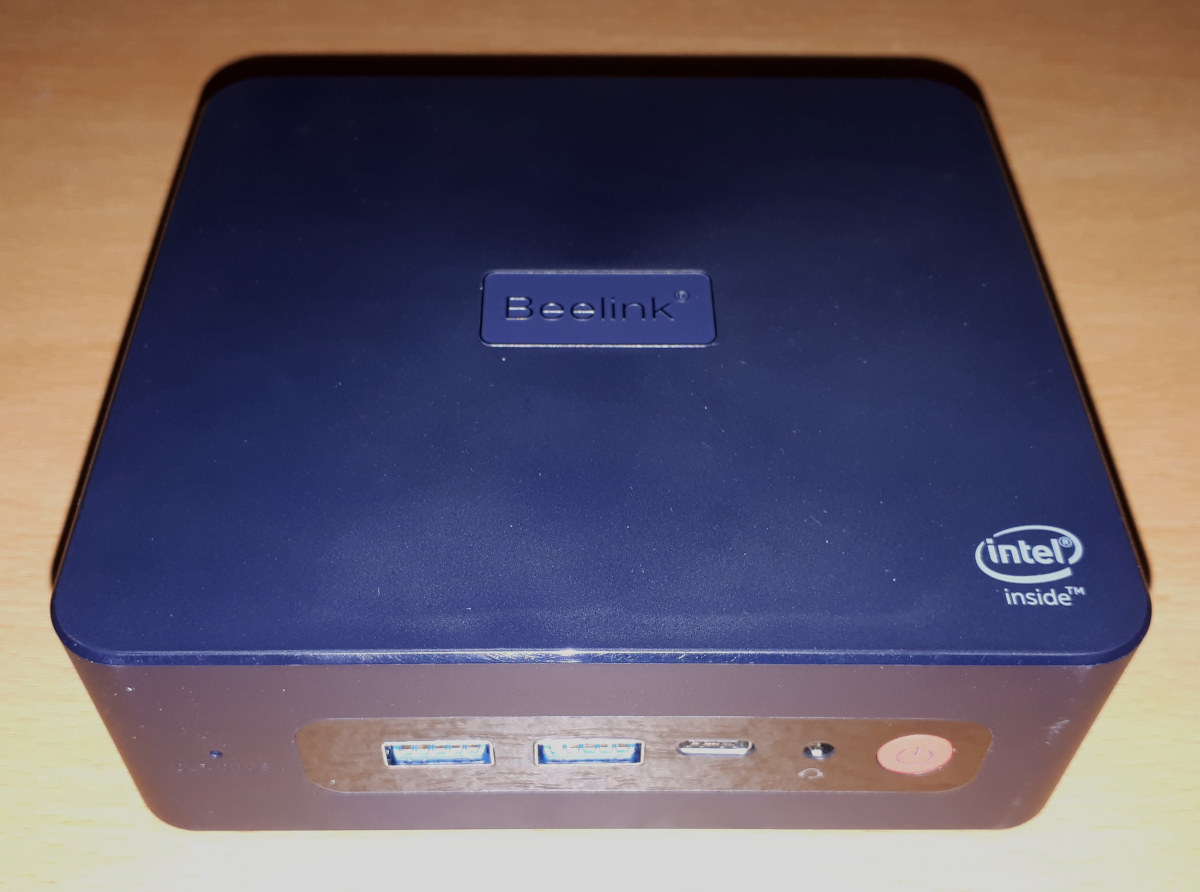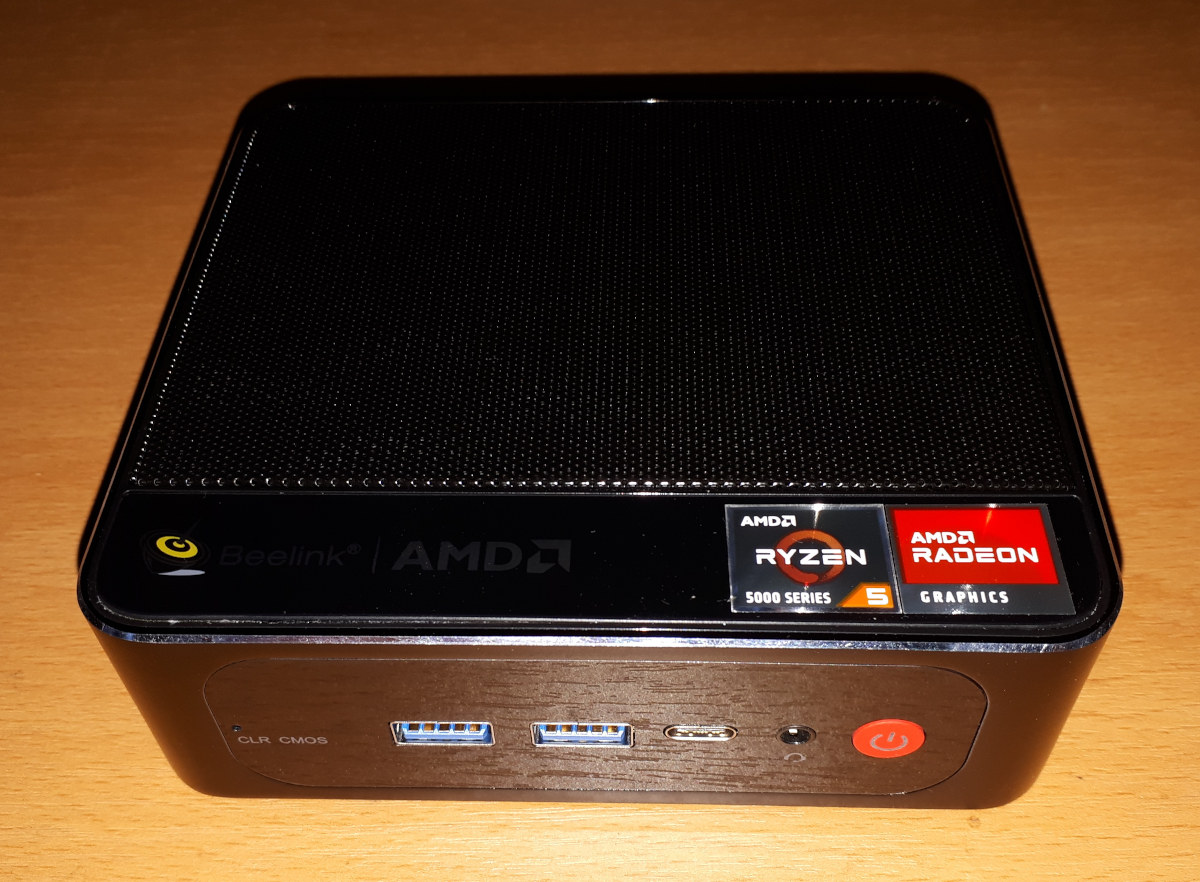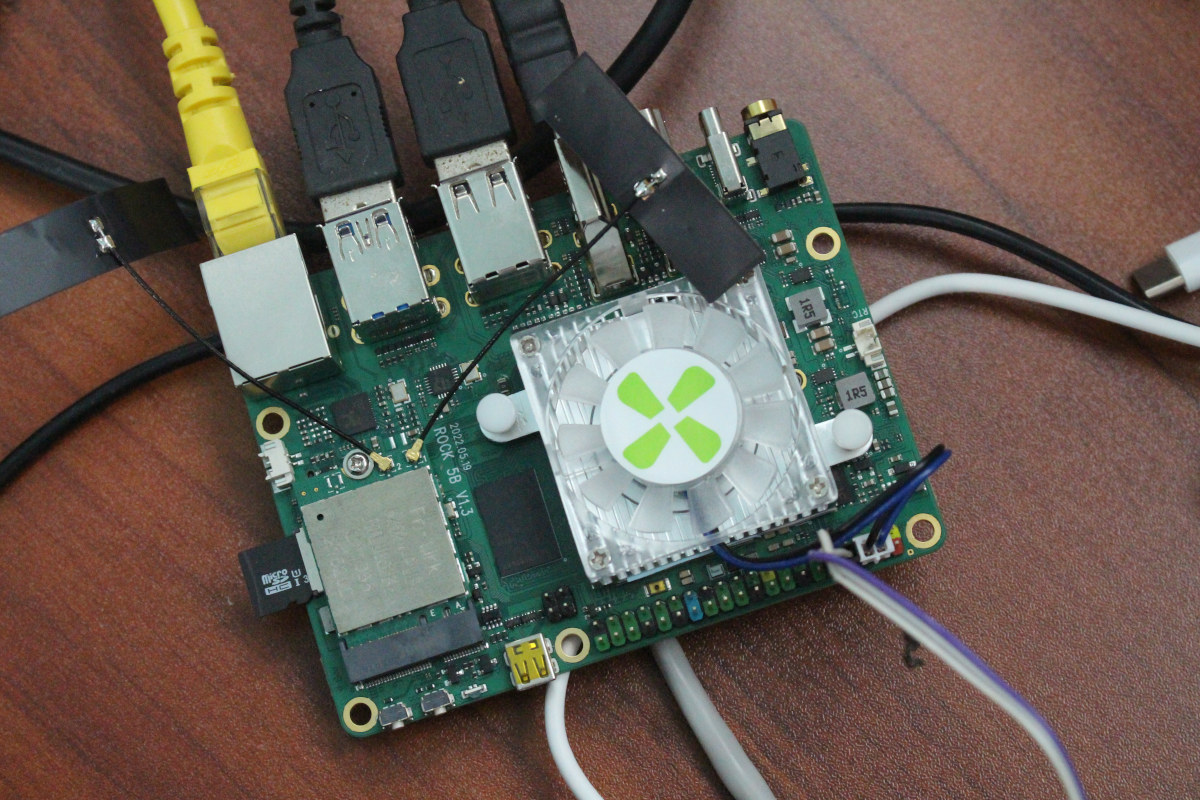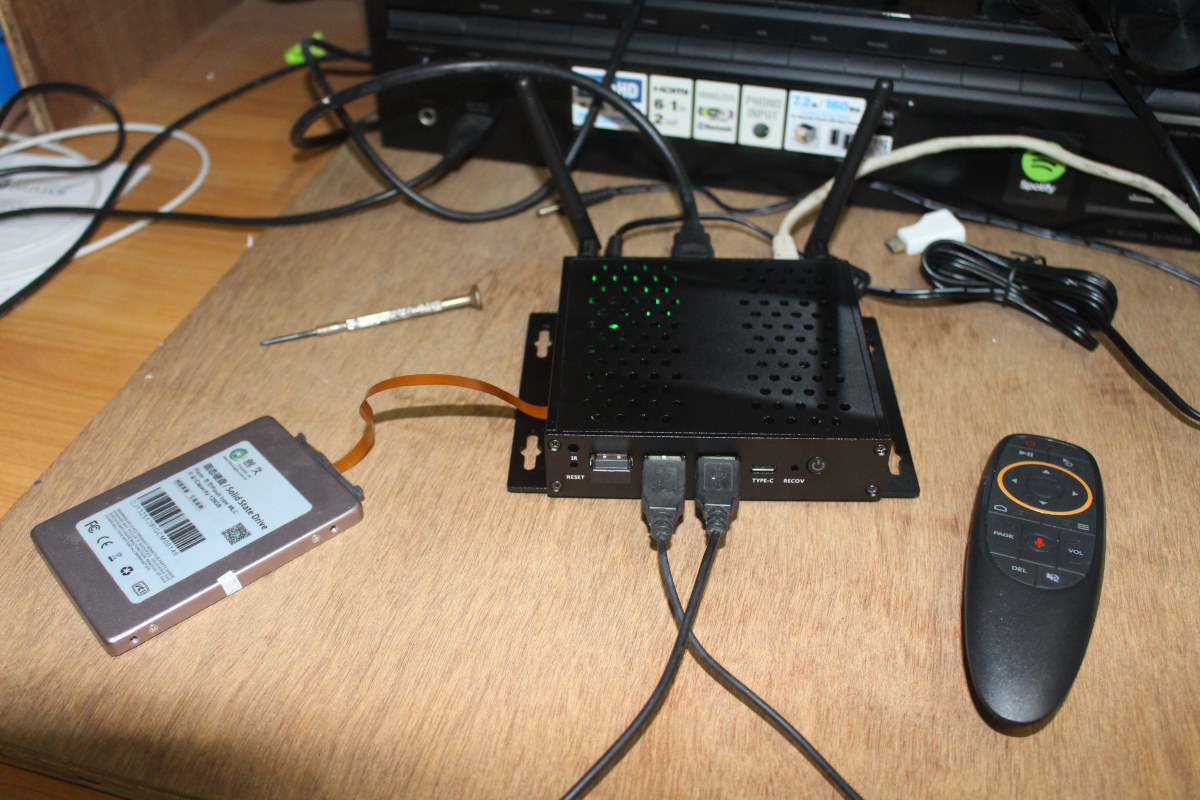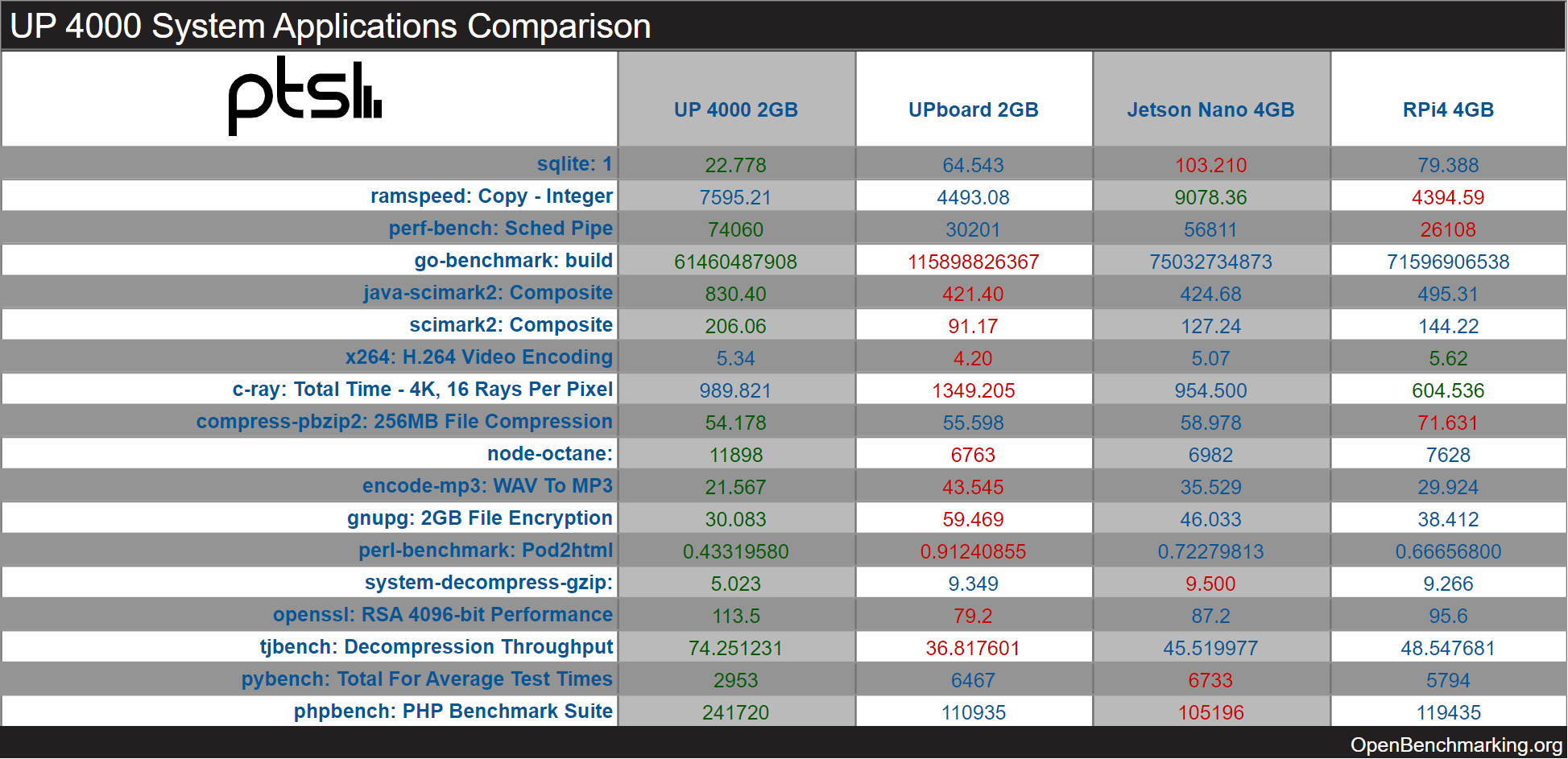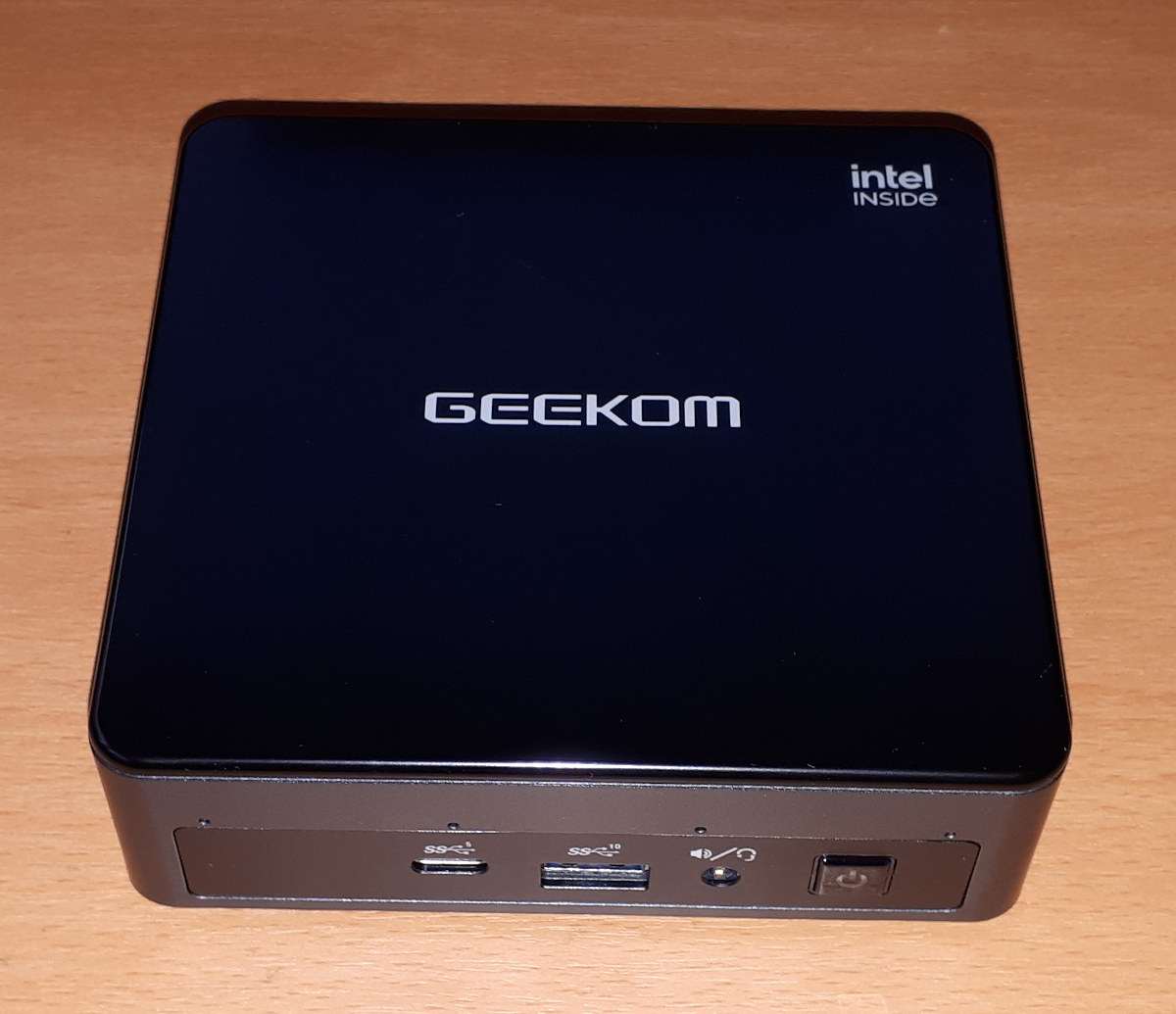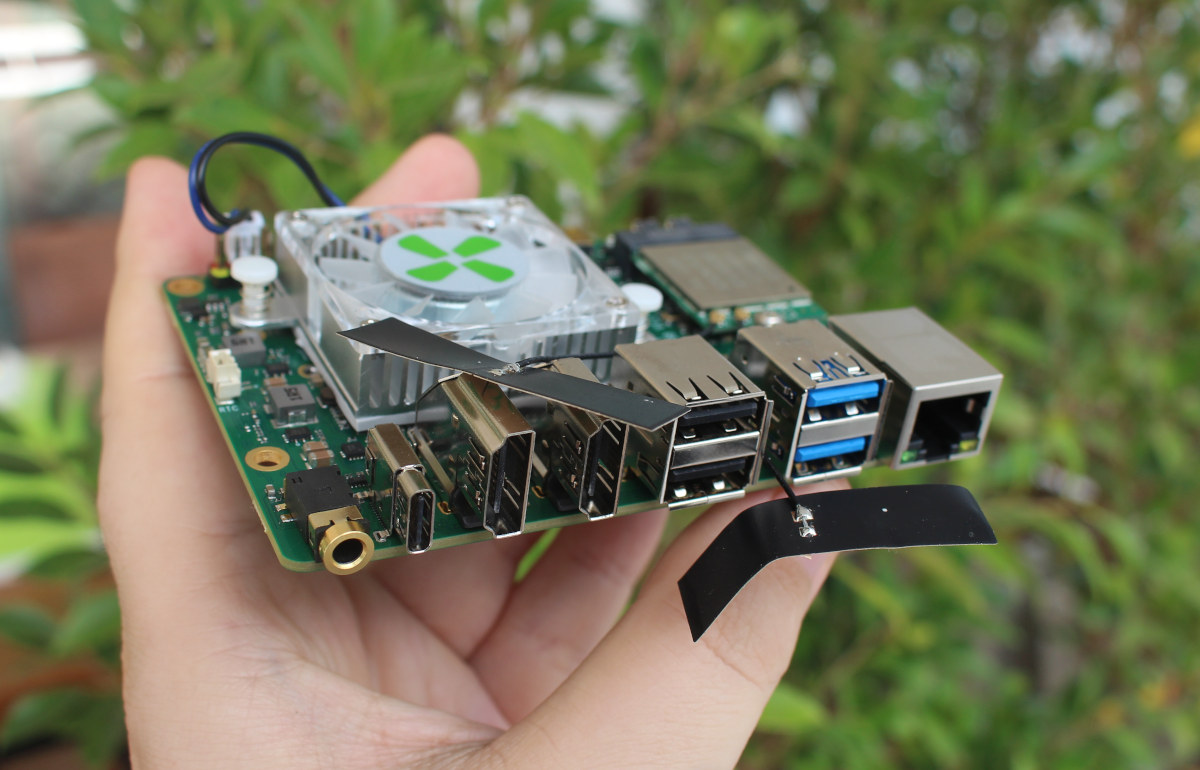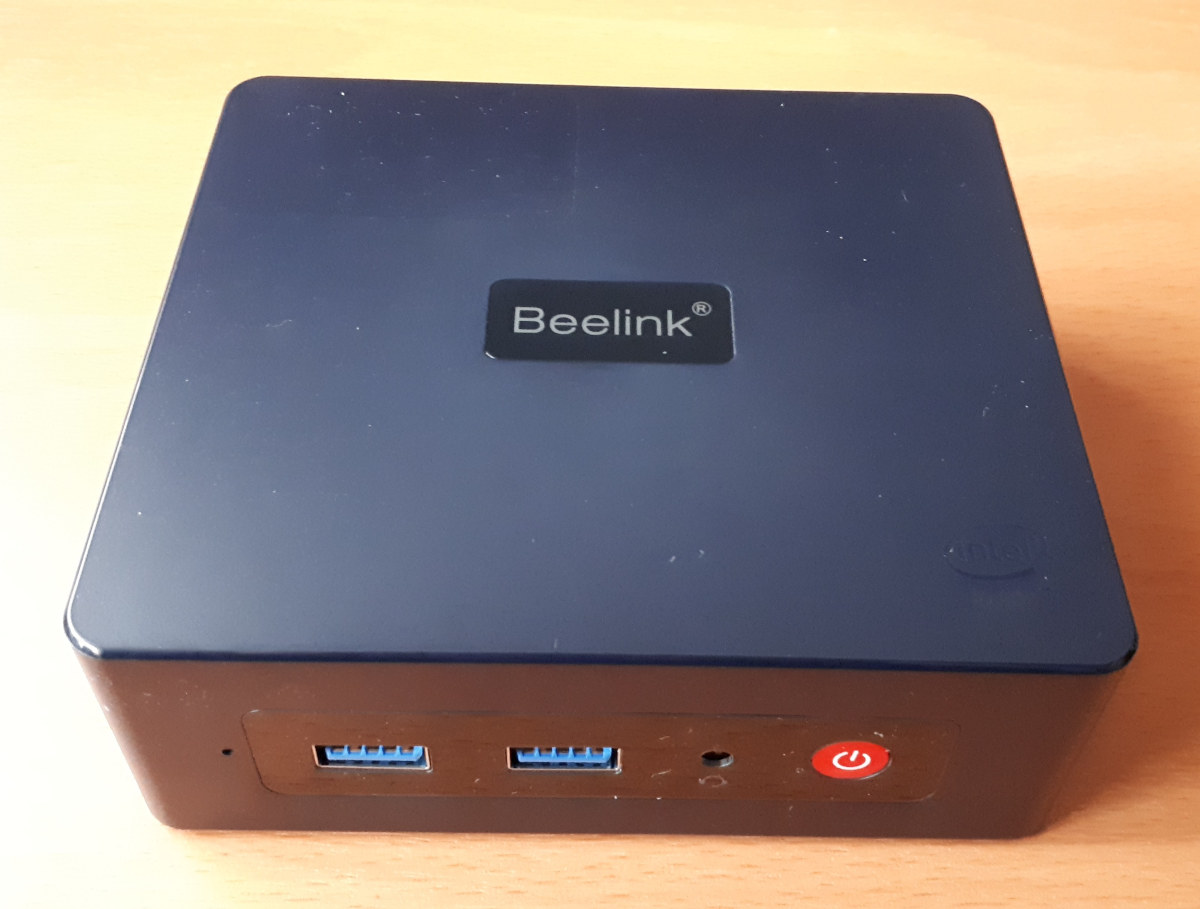Beelink’s newly launched U59 Pro addresses the weak graphical performance offered by the original Beelink U59, which we also noticed in the Beelink MINI S, and was a direct result of the iGPU limitations. By simply upgrading the CPU from a ‘desktop’ to ‘mobile’ Celeron processor the iGPU received a fifty percent boost in execution units. Beelink kindly sent one for review and I’ve looked at performance running both Windows and Ubuntu. Beelink U59 Pro Hardware Overview The Beelink U59 Pro physically consists of a 124 x 113 x 42mm (4.88 x 4.45 x 1.65 inches) square plastic case. As before it is an actively cooled mini PC but now uses Intel’s 10 nm Jasper Lake N5105 processor which is the same quad-core 4-thread 2.00 GHz Celeron processor boosting to 2.90 GHz but with improved Intel’s UHD Graphics as the ‘Graphics Burst Frequency’ increases from 750 MHz to 800 MHz […]
Beelink SER5 Review – An AMD Ryzen 5 5600H mini PC tested with Windows 11, Ubuntu 22.04
New to arrive in the Beelink SER lineup is the SER5 marketed as a ‘SER PRO’ and features one of last year’s AMD Ryzen 5000 H-series processors typically used in high-performance productivity and gaming laptops. Beelink kindly sent one for review and I’ve looked at performance running both Windows 11 and Ubuntu 22.04. Beelink SER5 Hardware Overview The Beelink SER5 physically consists of a 126 x 113 x 42mm (4.96 x 4.45 x 1.65 inches) square metal case. As an actively cooled mini PC, it uses AMD’s 7 nm Zen 3 Ryzen 5 5600H Cezanne processor which is a six-core 12-thread 3.3 GHz mobile processor boosting to 4.2 GHz with Radeon Graphics. The front panel has an illuminated power button, a 3.5mm headphone jack, a Type-C USB 3.1 port with Alternate Mode, dual USB 3.1 ports, and a reset pin-hole ‘CLR CMOS’. The rear panel includes a gigabit Ethernet port, […]
Rock 5B RK3588 SBC preview – What works, what doesn’t in Debian 11
I’ve recently received an early sample of Radxa ROCK5 Model B (aka ROCK 5B) SBC part of the “Developer Edition” batch with 16GB RAM, and already showed the hardware and it booting successfully in Debian 11.
I’ve now spent more time with the board, and as part of the “debug party” tested performance and features in Debian 11. As one would expect, some things work fine, providing excellent performance, but others still need improvements.
Mekotronics R58 review – Part 2: Android 12 on Rockchip RK3588 CPU
I’ve written the first part of Mekotronics R58 review last month with an unboxing, teardown, and first boot with 3D graphics benchmarks. I’ve now had more time to play with Android 12 on the Rockchp RK3588 mini PC, so I’ll report my experience with the device. User interface and settings As already mentioned, the box ships with Android 12 for TV and the stock launcher. The Google Play store is working, and I had no troubles installing all apps I needed for the review. Most of the settings are pretty much standard. While the first time, I used Ethernet, and also tried WiFi 6 connecting the R58 to Xiaomi Mi AX6000 router. It worked but not without some effort, as initially, all I got were messages like “Couldn’t find SSID” both with 2.4GHz and 5GHz SSIDs. It turned out I had to disconnect the Ethernet to make WiFi work, and […]
Benchmarks comparison between UP 4000, Raspberry Pi 4, UP board, and Jetson Nano
We wrote about the UP 4000 SBC with an Intel Apollo Lake processor and Raspberry Pi form factor yesterday. But today, I noticed the UP community had put up a benchmarks comparison between the UP 4000 board, the original UP board (Atom x5-8350), the Raspberry Pi 4, and NVIDIA Jetson Nano. They used several of the Phoronix Test Suite benchmarks running on Ubuntu 20.04 (x86) or Ubuntu 18.04 (Arm) on all four boards. The UP 4000 board used featured an Intel Celeron N3350 dual-core processor @ 2.40GHz, the 2GB RAM version of the UP Board, an RPi 4 with 4GB RAM, and a Jetson Nano developer kit with 4GB RAM. As one would have expected, the UP 4000 is ahead in most tests, even though they did not select a model with a quad-core processor such as a Pentium N4200. Note that reading the table may be confusing as for […]
GEEKOM MiniAir 11 Review – A Jasper Lake Mini PC with plenty of ports
The GEEKOM MiniAir 11 is not just another mini PC powered by an Intel Jasper Lake N5095 processor but one that distinguishes itself by having a comprehensive range of ports. GEEKOM kindly sent a MiniAir 11 for review and I’ve looked at performance running both Windows 11 and Ubuntu 22.04. MiniAir 11 hardware overview The GEEKOM MiniAir 11 physically consists of a 117 x 112 x 34.2mm (4.61 x 4.41 x 1.35 inches) square plastic case. As an actively cooled mini PC, it uses Intel’s new 10 nm Jasper Lake N5095 processor which is a quad-core 4-thread 2.00 GHz Celeron processor boosting to 2.90 GHz with Intel’s UHD Graphics. The front panel has an illuminated power button, a 3.5mm headphone jack, a USB 3.2 Gen 2×1 port, and a Type-C USB 3.2 Gen 1×1 port. It also includes a CIR (consumer infrared) port which supports remote control. The rear panel […]
ROCK 5B developer edition preview – Part 1: Unboxing and first boot to Debian 11
Radxa ROCK5 Model B (aka ROCK 5B) is one of the most anticipated Rockchip RK3588 single board computers due to its features set and relatively affordable price. It was first showcased in January, but it’s taking a while as the Cortex-A76/A55 SoC is a complex beast. The good news is that the public launch is getting closer as Radxa sent “developer edition” samples to developers and enthusiasts for a “debug party”. I was one of the recipients so, in this post, I’ll have a closer look at the latest revision of the board, and give it a quick try first before going into more details in the second of this preview. ROCK5 Model B unboxing I received the 16GB RAM version which should be the same for all board part of the “developer edition batch. Developers are invited to submit reports to Radxa forums, and since those are public, anybody […]
Beelink MINI S Review – A Low-cost mini PC tested with Ubuntu 22.04 and Windows 11
Whilst the first mini PCs were relatively simplistic using low-powered Intel Atom processors with minimal memory, storage, and ports, more recent mini PCs have become so advanced they can challenge SFF builds for both performance and functionality. However, such mini PCs come with prices to match. Beelink has now released the MINI S which is a mini PC that goes back to the basics and is based on a cut-down version of their earlier Beelink U59 mini PC and priced to match. Beelink kindly sent one for review and I’ve looked at performance running both Windows and Ubuntu and compared it directly against the U59. Beelink MINI S hardware overview The Beelink MINI S physically consists of a 115 x 102 x 41mm (4.53 x 4.02 x 1.61 inches) square plastic case. As an actively cooled mini PC, it uses Intel’s new 10 nm Jasper Lake N5095 processor which is […]


